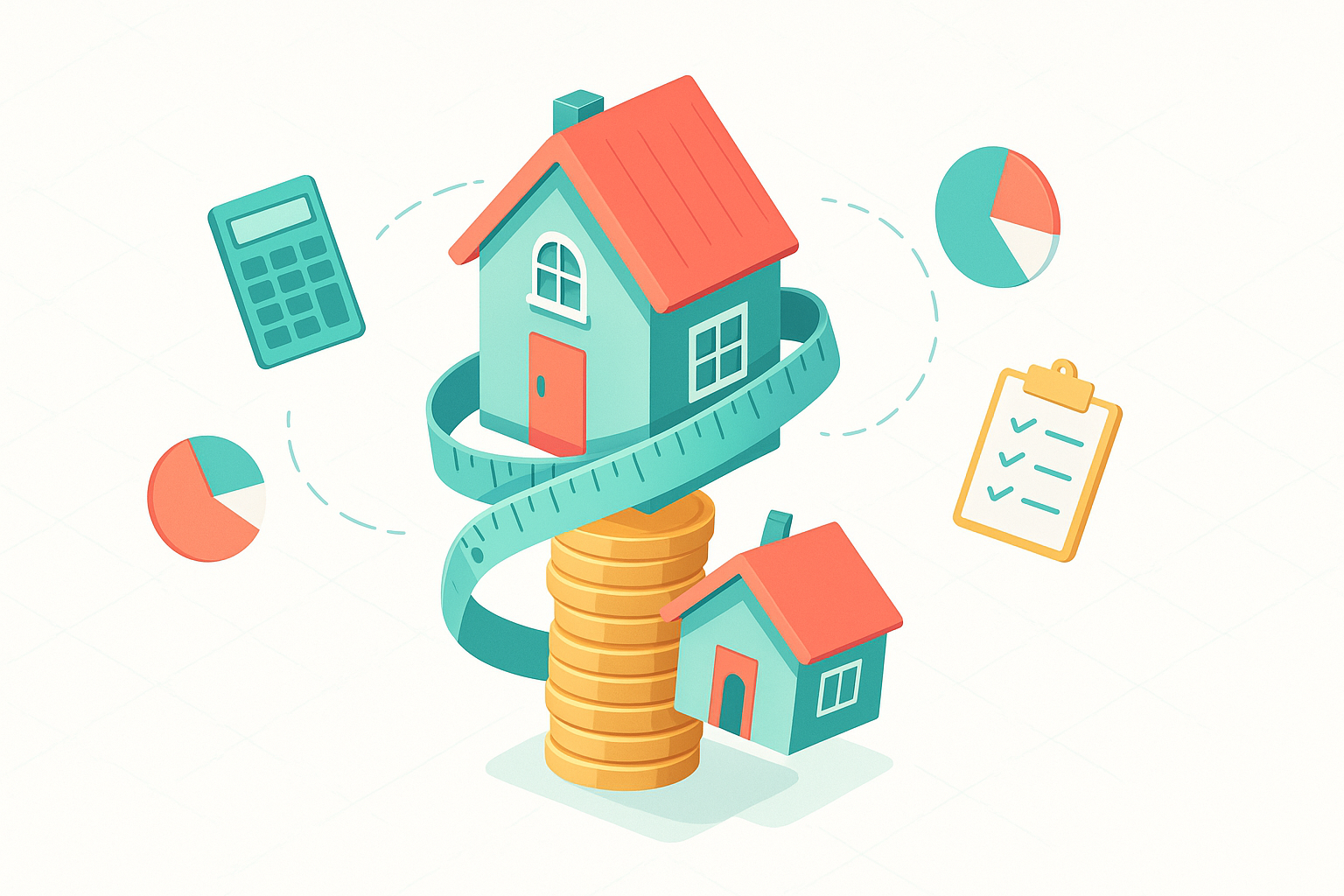
How Much House Can You Afford?
Disclaimer: The information in this article is based on general best practices and does not constitute specific financial or mortgage advice. Always consult with a licensed mortgage professional regarding your individual situation.
As a mortgage professional, one of the first questions I hear from clients is, "How much house can I really afford?" It's an important question—and the answer depends on your income, expenses, debts, down payment, and more. Here's what I recommend when you're trying to figure out your homebuying budget.
The 28/36 Rule: A Good Starting Point
Many lenders use the 28/36 rule to help determine what you can safely spend:
- 28% of your gross monthly income (before taxes) for your total housing costs (including mortgage, taxes, and insurance).
- 36% of your gross monthly income for all debt payments combined (housing, car loans, student loans, credit cards, etc.).
Step-by-Step: Calculating Your Budget
- Add up your monthly gross income: Include salaries, bonuses, and any steady additional income.
- List your monthly debts: Student loans, car payments, credit cards, child support, etc.
- Estimate property taxes and insurance: These can add hundreds to your monthly payment.
- Calculate your down payment: A larger down payment lowers your monthly payment and may eliminate PMI.
- Use a mortgage calculator: Enter your numbers and see what payment fits within your budget.
Example: What Can You Afford?
Suppose your household brings in $7,000 a month before taxes.
- 28% rule: $7,000 × 0.28 = $1,960/month for housing
- 36% rule: $7,000 × 0.36 = $2,520/month for all debt
If you have $400 in monthly debts, that leaves about $2,120/month for your mortgage, taxes, and insurance.
Other Factors to Consider
- Down payment: Can you put 20% down? If not, plan for PMI.
- Other costs: Don't forget about utilities, maintenance, HOA fees, and savings for repairs.
- Your comfort level: Just because you qualify for a bigger loan doesn't mean you should take it. Think about what feels comfortable and leaves you room for other life goals.
Tips from the Field
- Don't max out your budget—give yourself a cushion for emergencies or lifestyle changes.
- Revisit your numbers as your finances change.
- Ask your lender to walk you through different scenarios.
Knowing your budget before you start shopping will help you focus on homes you can truly afford and keep your finances healthy for years to come.
Try our mortgage calculator to run the numbers for your situation, or check out our blog for more smart homebuying tips!